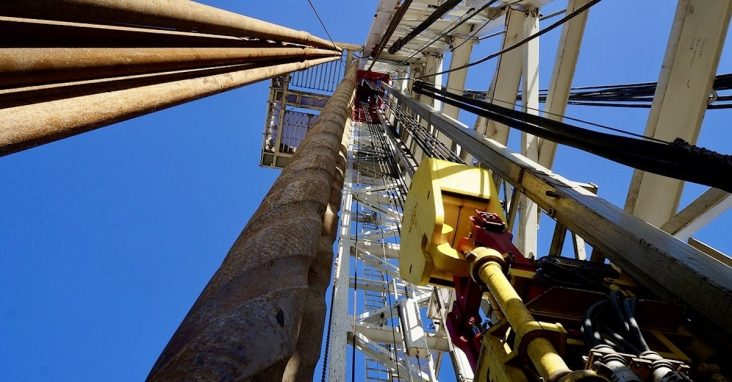Economics, technology at play in new Fayetteville Shale drilling
by February 23, 2025 7:26 pm 5,516 views

David Howald, Flywheel Energy’s chief operating officer, said that controlling costs, new technology, and industry economics are at the heart of his company investing heavily in the Fayetteville Shale Play.
The once-booming natural gas play across north central Arkansas has been dormant from new drilling activity since 2018. Oklahoma City-based Flywheel has been consolidating its position in Arkansas for the past few years, picking up positions from Southwestern Energy, XTO, and others. It announced last week it would add at least three new rigs and invest from $25 million to $30 million in new drilling in Arkansas.
Howald said the company has been sharpening its efficiencies as it attracts investors despite natural gas prices that aren’t anywhere near historic highs. The Henry Hub price for natural gas was $4.13 per million BTU in January, the highest January price since $4.38 in 2022. However, the January price is well below $13.42 in October 2005 during the natural gas drilling boom that sparked initial activity in the Fayetteville Shale.
“We had some historical wells that hadn’t been fully completed,” said Howald. “So a couple years ago we came in, finished out some of those, completed those, tried out some new technologies to see what new technologies that have been developed over the past few years would look like on this rock. One of the things that those results have shown us is that there’s still opportunity out there. It was just waiting for the right time, the right capital investors who would be thinking about maybe standing a rig back up, and especially the right regulatory business, and political environment for drilling.”
New technologies are allowing natural gas drillers to get more out of the shale layers where carbon has been captured for centuries. Howald compared the rocks to “sponges” and said he thinks the economics work for drilling at current price levels.
Howald believes the new Trump administration’s energy policies combined with the business environment in Arkansas is ripe for promising returns.
“The economics in the Fayetteville Shale look decent enough to get a rig running,” he said. “Arkansas, at the state level, has been a fantastic place to do business, but you have that federal risk. Now that you see a federal administration that is extremely business-focused with common sense energy policies at the federal level, and you have state leaders who are on the exact same page, that really was kind of all our investors needed to get running.”
He cautioned, however, against expectations that the Fayetteville Shale Play may undergo another boom like Arkansas saw in the mid to late 2000s.
“No, that’s one we want to be pretty clear on,” he said. “It’s a very different business model when you’re in the mature stages of the play. In the early days, you have to start from nothing. You have to drill at a pace that builds up the actual production. But then once you have a large production base, which the Fayetteville still has, I think a lot of people are surprised to hear how much the asset is producing compared to other basins. It’s a lot of gas, but it is declining.
“Now it’s really what the profile that we’re looking for is. You know, we’re not trying over two to three years to double or triple the amount of gas that’s being produced out there. We’re trying to find a level of gas that we can keep roughly at the same level for 10, 20, 30, 40 years. So it’s a different focus. It requires a lot more discipline, but we think we have the exact team for that type of approach. … Even just running one or two rigs, you’re talking about hundreds of millions of dollars that are coming into the state, coming into the basin. Those are direct jobs that are Arkansas-based jobs, and it’s setting the conditions for reliable, affordable energy.”
You can watch Howald’s full interview in the video below.
